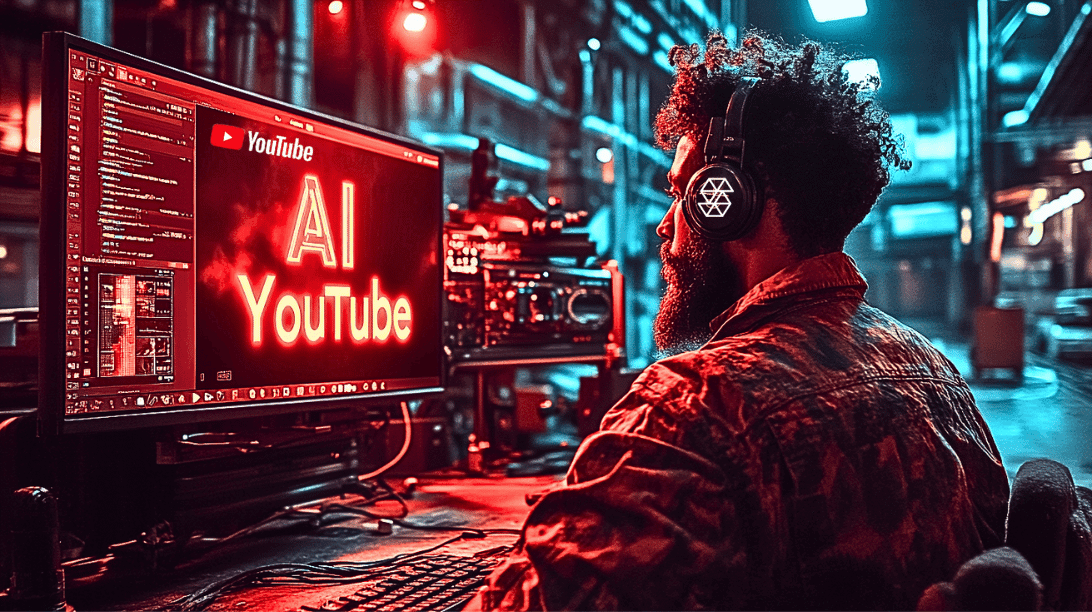The Rise of AI Companions and Digital Partners – including Custom Girlfriend & Boyfriend GPTs
In recent years, the realm of artificial intelligence has seen a remarkable evolution, extending its reach into the domain of personal connections with the emergence of AI girlfriends and boyfriends. This trend marks a significant shift in how we perceive and interact with AI, transcending traditional boundaries to explore the realm of romantic AI. The concept of forming a digital bond with an AI companion app or AI girlfriend or boyfriend is no longer a futuristic fantasy but a present reality, intriguing a wide audience ranging from tech enthusiasts to the general public.
The advent of these AI companions is a testament to the advancements in large language models, which have enabled AI to mimic human-like interactions with a degree of sophistication previously unattainable. Active users of these platforms experience a new kind of relationship, one that challenges our traditional understanding of human connections. The AI girlfriend or AI boyfriend is not just a programmed entity but an interactive companion, capable of engaging users in ways that are both novel and familiar.
As we delve into this intriguing topic, our focus will be on understanding the technological underpinnings of these AI entities, their impact on the landscape of human relationships, and the broader implications of their existence. From exploring the mechanics behind AI companion chatbots to examining the nature of interactions with a digital entity that simulates a real person, this article aims to provide a comprehensive overview of the rise of AI girlfriends and boyfriends, illuminating the fascinating intersection of technology and human interaction in the digital age.

Evolution of AI Companionship
The journey of AI companionship from concept to reality is a fascinating tale of technological innovation and societal adaptation. This evolution has been propelled by rapid advancements in artificial intelligence, particularly in the fields of natural language processing and machine learning.
The roots of AI companionship can be traced back to the early days of computing, with simple text-based chatbots like ELIZA. These early attempts at creating digital companions laid the foundation for more sophisticated interactions. However, it was the emergence of more advanced AI technologies, like large language models, that truly transformed the landscape. These models, trained on vast amounts of text data, enabled a leap from basic programmed responses to dynamic, context-aware conversations.
The crux of modern AI companionship lies in the breakthroughs in natural language processing (NLP). NLP allows AI to not only understand and generate human language but also detect nuances and emotional undertones. This advancement has been crucial in enabling AI companions, like AI girlfriends and boyfriends, to provide interactions that feel remarkably human. The AI doesn’t just respond to queries; it engages in a manner that can simulate empathy, humor, and personality, mirroring the complexity of a real person’s communication style.

From Gaming to Mainstream Culture
AI companionship initially found its footing in the gaming industry, with virtual characters and romance simulation games. However, as AI technology advanced, these companions stepped out of the gaming realm into mainstream culture. Today, companion apps offer a wide range of personalized experiences, from platonic friendship to romantic interaction, catering to the diverse needs of their active users.
The evolution of AI companionship has also been fueled by the exponential growth of big data and advancements in machine learning algorithms. AI entities learn and adapt through interaction, becoming more refined and personalized over time. This learning process is powered by the analysis of large datasets, enabling AI to mimic human-like interactions more accurately.
The journey of AI companionship is a testament to the remarkable capabilities of modern AI technology. As we continue to witness advancements in this field, the role of AI in our personal and social lives is set to deepen, presenting new opportunities and challenges in how we interact with technology and each other. The evolution of AI companionship not only reflects our technological prowess but also our innate desire for connection, showcasing the human side of artificial intelligence.
Custom GPT Companions
The introduction of custom GPT companions represents a significant evolution in the field of AI relationships. OpenAI’s recent launch of the GPT Store, a platform where paid ChatGPT users can buy and sell customized chatbots, has marked a new era in digital companionship. This development allows users to not only interact with AI entities but also to personalize them to a previously unattainable degree.
The concept of custom GPT companions stems from the desire to have more personalized and meaningful interactions with AI. These aren’t just generic chatbots; they are tailored to individual preferences and needs. The GPT Store has seen a variety of these custom companions, ranging from AI girlfriends and boyfriends to more platonic chatbots. Each one offers unique characteristics and interaction styles, catering to the different desires of users.
This customization goes beyond mere appearance or name changes; it includes tailoring the AI’s conversation patterns, emotional responses, and even the topics it can discuss. Such detailed customization allows users to create a digital companion that aligns closely with their preferences, making the interactions more engaging and realistic.
However, the advent of custom GPT companions also brings to the forefront various ethical and policy considerations. OpenAI’s usage policy, for instance, bans GPTs dedicated to fostering romantic companionship or performing regulated activities. This raises questions about the boundaries of AI relationships and the responsibilities of platforms hosting these AI entities. As the popularity of these custom companions grows, navigating these ethical waters and adhering to policy guidelines will be crucial for developers and platform providers.

Business and Legal Perspectives in AI Companionship
The burgeoning field of AI companionship is not just a technological marvel for the public but also presents significant market potential and business opportunities. At the same time, it introduces a complex array of data privacy, security concerns, and legal challenges that need to be navigated with care and foresight.
The AI companionship industry is rapidly expanding, driven by increasing consumer interest and advancements in AI technology. Businesses are exploring this space, recognizing the potential for a variety of applications. The customization capabilities of AI, as showcased in platforms like OpenAI’s GPT Store, open up avenues for highly personalized product offerings.
With the rise of AI companions comes a heightened focus on data privacy and security. These AI entities often collect and process large amounts of personal data to provide personalized interactions. This raises concerns about how this data is stored, used, and protected. Companies operating in this space must adhere to data protection regulations and laws, ensuring that user data is handled responsibly. The challenge is to maintain a balance between offering personalized experiences and safeguarding user privacy.
The legal framework surrounding AI relationships is still in its nascent stages. As AI companions become more prevalent, there will be an increasing need for clear regulations and guidelines addressing issues such as user consent, data ownership, and liability in cases of misuse or harm. Companies will need to navigate this evolving legal landscape, staying abreast of new regulations and ensuring compliance. This includes being prepared for potential legal challenges related to AI interactions and the ethical implications of AI companionship.
As the AI companionship industry continues to grow, businesses must prepare for the future. This involves not only capitalizing on market opportunities but also proactively addressing the ethical, legal, and security challenges that come with it. By staying ahead of these issues, companies can build trust with their users and establish themselves as leaders in this emerging field.
The Future of AI Companionship
As we venture deeper into the era of artificial intelligence and the large language model, the future of AI companionship holds intriguing possibilities. Predictions about the evolution of AI companions and their role in society point towards a landscape that is as diverse as it is complex.
Future AI companions are expected to achieve unprecedented levels of personalization and realism in a companion app. Advances in AI and machine learning will enable these companions to understand and adapt to individual user needs and preferences more effectively. This could lead to AI entities that not only mimic human behavior and conversation but also anticipate user needs, manage preferences, and evolve over time, much like a real human relationship instead of an AI companion.






